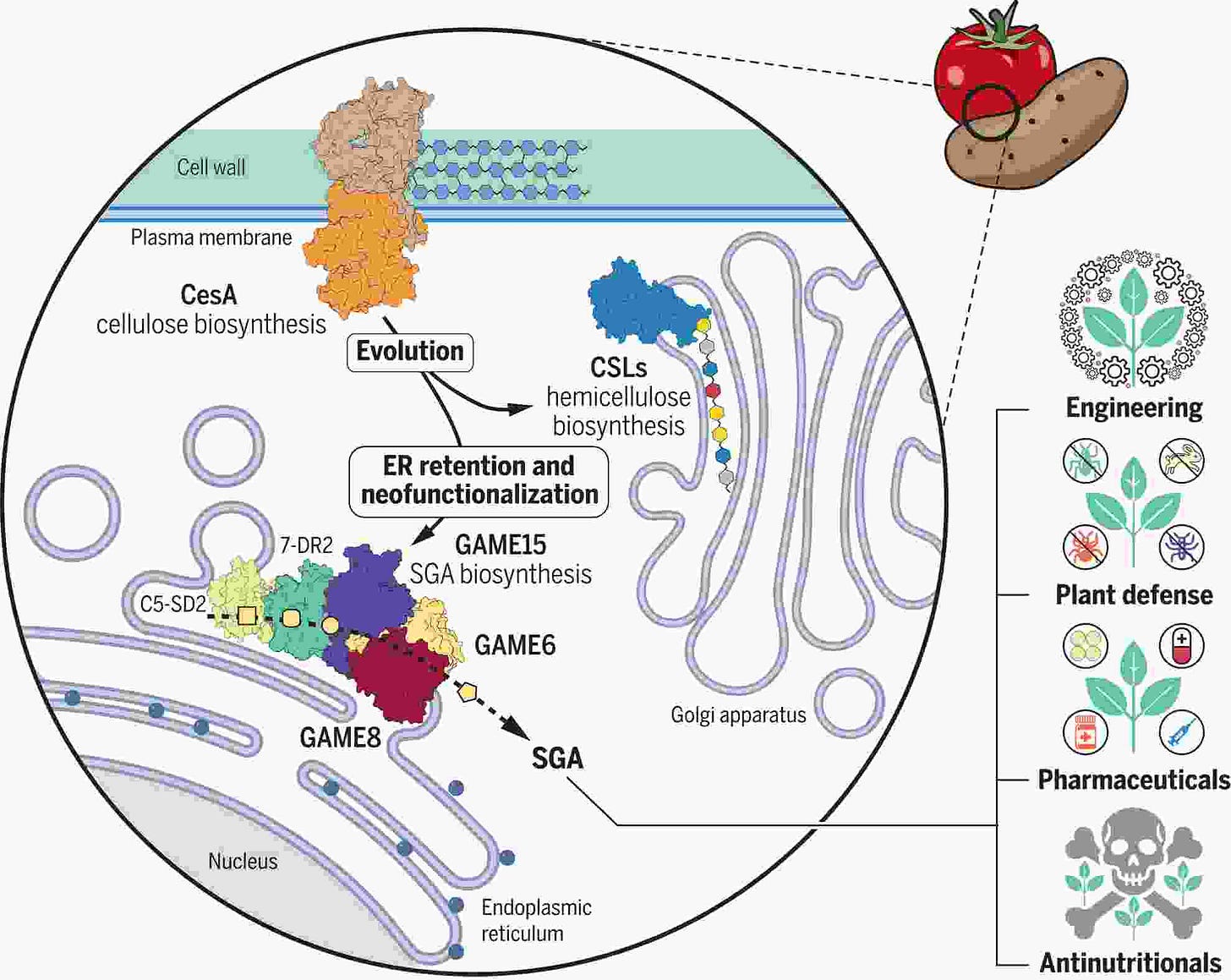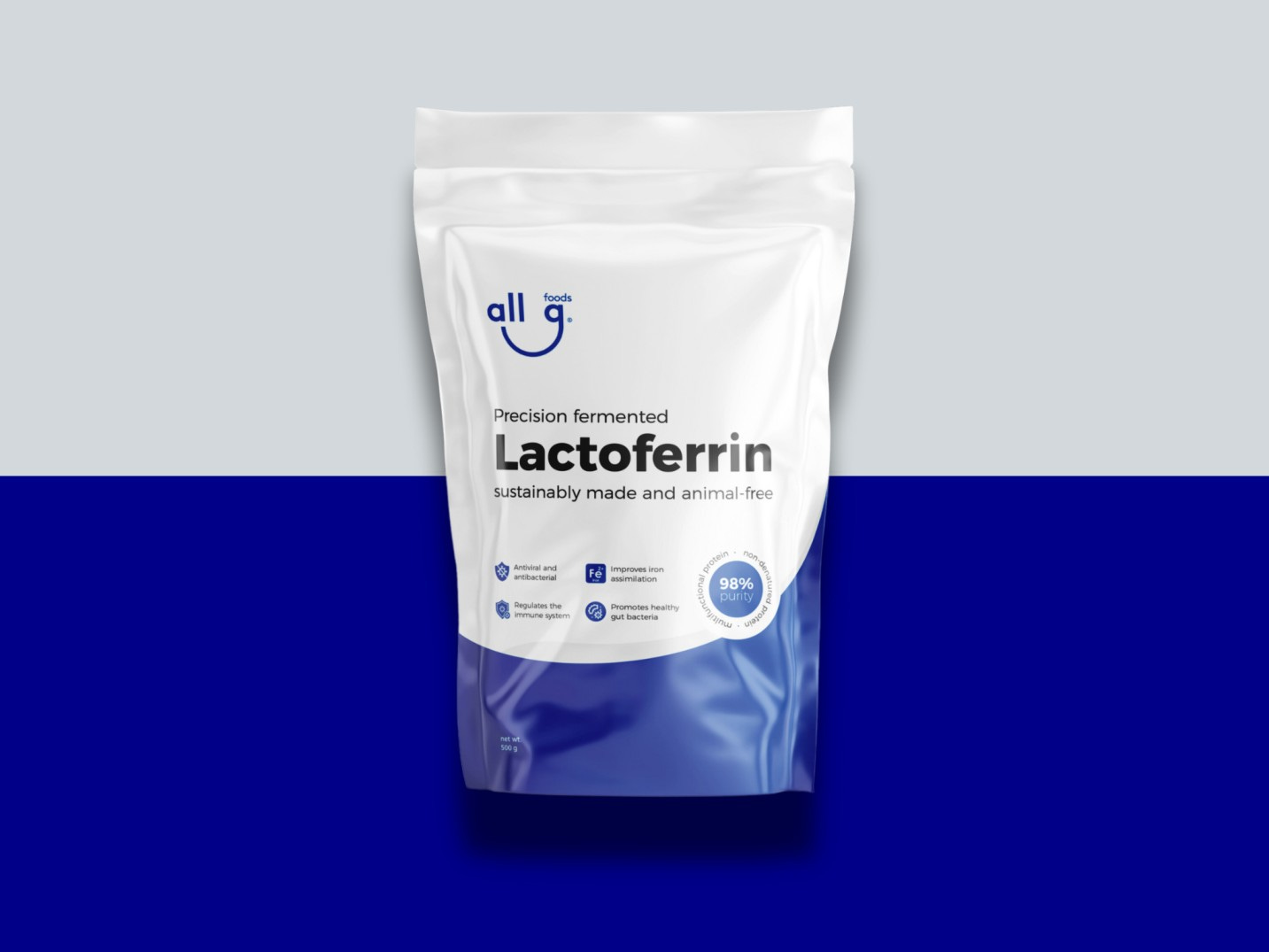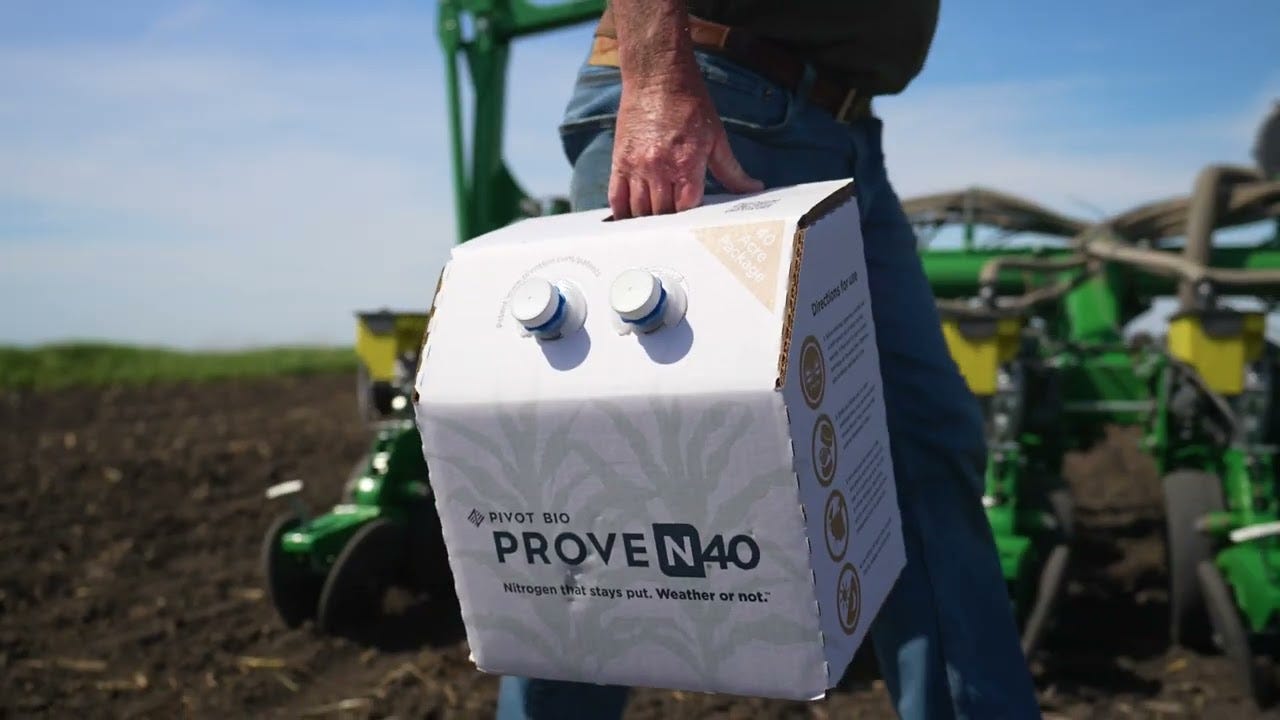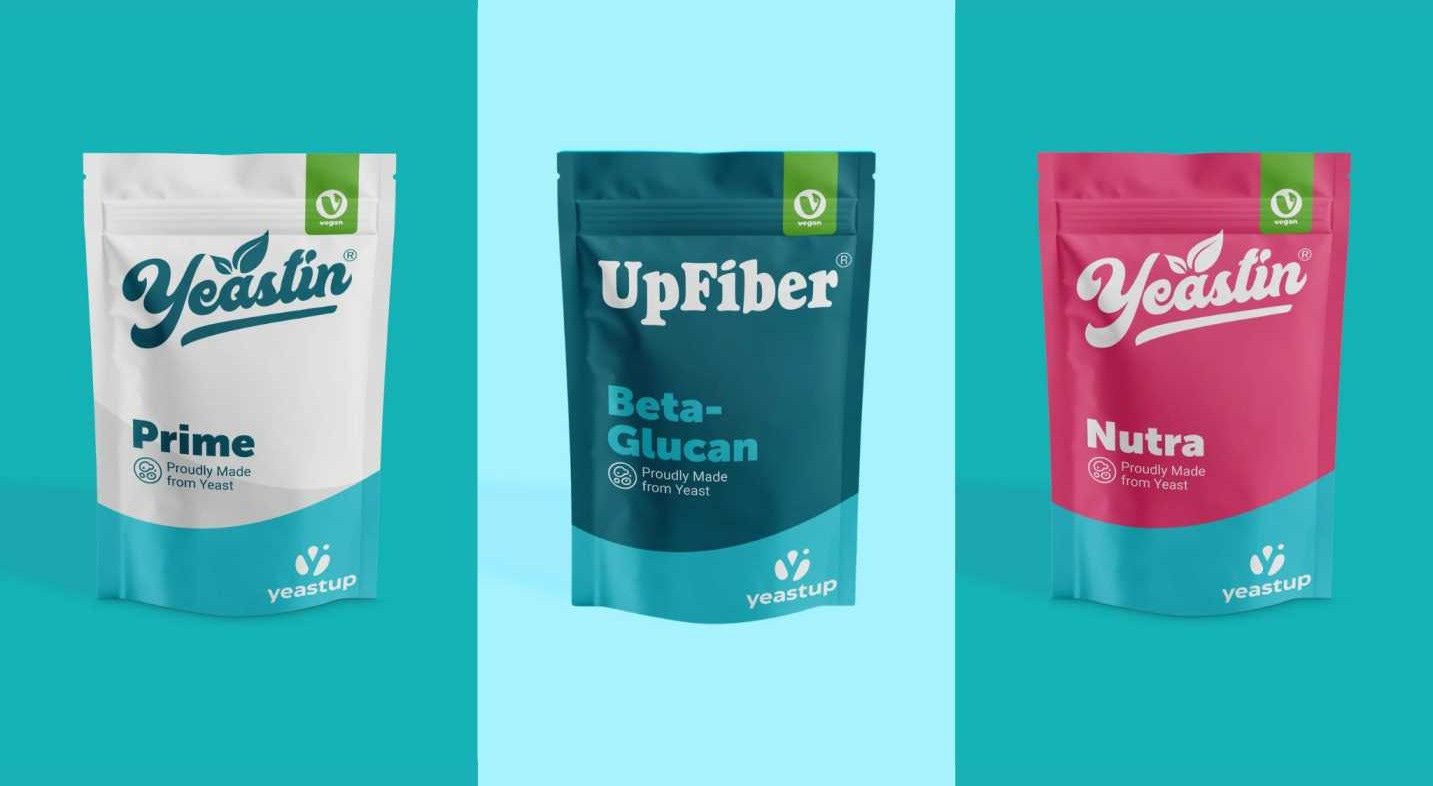€134M Green Biomanufacturing Grant, Major Advances in Precision-Fermented Ingredients, and $27M for Short-Chain Fibre Tech
Also: Scientists discovered a way to remove toxins from potatoes, making them safer and easier to store.
Hey, welcome to issue #86 of the Better Bioeconomy newsletter. Thanks for being here!
As the year winds down, I want to thank you for reading Better Bioeconomy. It means so much to me to be able to share what I have learned with you, and I am very grateful to you.
It’s been a challenging yet incredibly fulfilling year. I started a new job (shoutout to Better Bite Ventures; sometimes, I still can’t believe I’m part of the team), finished my part-time master’s program a few days ago, and continued growing this newsletter. Thanks again for being part of this journey. 🙏🏾
I’ll be taking a small break for the holidays but will be back in your inbox on January 13, 2025. Wishing you a happy, restful holiday season—and don’t forget to be kind to yourself. See you next year! 🙂
As always, if you’re working on (bio)tech-based solutions for sustainable food systems, I’d love to connect. I started this newsletter to meet folks with similar interests, so feel free to reach out to chat on LinkedIn or hop on a call—I’m always happy to discuss ideas and opportunities!
Let’s dig into the latest updates on the intersection of biotech and agrifood!
BIO BUZZ
🇦🇺 All G obtained self-determined GRAS status for its precision-fermented bovine lactoferrin in the US
This comes just weeks after the Australian startup became the first company to be cleared to sell cow-free lactoferrin in China. Now, the self-affirmed GRAS status allows All G to engage with US F&B companies.
Still, a formal FDA "no questions" letter will ensure greater transparency and consumer trust. The company aims for a formal FDA "no questions" letter next year and plans to launch its bovine lactoferrin commercially in the latter half of 2025.
All G is also working on human lactoferrin and casein proteins, with a commercial launch planned for 2025. The startup aims to expand adult nutrition and infant formula applications while creating opportunities to explore new markets.
Source: Green Queen
🇬🇧🇨🇦 Tate & Lyle and BioHarvest partner to create better-for-you plant-based sweeteners using the Botanical Synthesis platform
Tate & Lyle, maker of sugar substitute Splenda, is a 165-year-old legacy sugar producer that sold its sugar business in 2010 to focus on health-forward food ingredients for food and beverage manufacturers.
BioHarvest’s Botanical Synthesis technology grows targeted plant cells to produce plant-based molecules without cultivating the full plant. This technology offers scalable, non-GMO, and climate-friendly solutions.
Tate & Lyle’s regulatory and nutritional insights and BioHarvest’s extensive R&D are expected to accelerate the development and commercialization of these next-generation sweeteners.
Source: Green Queen
🇺🇸 New Culture can produce functional mozzarella with 50% less casein protein than conventional mozzarella using precision-fermentation
This reduction helps bring the company closer to achieving cost parity with conventional mozzarella, improving its financial sustainability and positioning it for positive net margins.
Despite using half the casein, New Culture’s animal-free mozzarella delivers on 15 key metrics, including melt and stretch (for pizzas) and mouthfeel and flavour (for salads).
New Culture is gearing up for a commercial launch at Nancy Silverton’s Pizzeria Mozza in Los Angeles. Strategic partnerships with CJ CheilJedang and ADM will help scale production to meet demand.
Source: AgFunder
🇫🇮 Onego Bio filed a GRAS notice to the FDA, asserting the safety of its precision-fermented egg protein
The Finnish startup aims to launch its precision-fermented egg protein, Bioalbumen, in the US market as the primary market. By formally notifying the FDA of its safety, Onego seeks regulatory approval for its animal-free egg proteins, a key step towards commercialization.
Bioalbumen is a bioidentical ovalbumin (makes up 54% of egg white protein) produced via precision fermentation using Trichoderma reesei fungi modified with ovalbumin’s genetic blueprint.
A few months ago, the startup secured a $2M grant from the US Department of Defense’s Distributed Bioindustrial Manufacturing Program to plan a bioalbumen production facility in the Midwest.
Source: Green Queen
🇺🇸 Pivot Bio partnered with Hefty Seed to distribute microbial nitrogen product powered by gene editing across 49 locations
Hefty Seed Co. is one of the largest independent agricultural retailers in the US. Its network spans 49 locations in 10 US states, making Pivot Bio’s product PROVEN® 40 widely accessible to corn farmers as a complementary nitrogen source.
PROVEN® 40 delivers nitrogen directly to crops during the growing season, reducing environmental risks from nitrogen loss while maintaining strong yields. It strengthens modern crop management systems by serving as a complementary nitrogen source alongside synthetic fertilizers and manure.
Through the collaboration, farmers will benefit from hands-on support from local Hefty advisors and Pivot Bio agronomists. Additional programs like Pivot Bio's N-OVATOR offer revenue opportunities by aligning farmers with sustainable practices that appeal to downstream buyers.
Source: PR Newswire
🇮🇱 PoLoPo scaled production of egg-protein-producing potatoes to large-scale field cultivation, increasing production to 3 tons per harvest
Using metabolic engineering, PoLoPo's potatoes are designed to accumulate proteins like ovalbumin, a key component of egg protein. These proteins are then extracted and converted into protein powders for food and other applications.
The company is conducting field trials in the Eshkol region of southern Israel. The first major harvest, building on earlier small-scale successes in controlled environments, is expected in spring 2025.
PoLoPo has three key goals for these field trials: scaling up production, testing new genotypes for efficiency, and validating the quality and consistency of existing varieties. These goals are supported by collaboration with local agricultural experts.
Source: vegconomist
🇺🇸 Ohalo, University of Florida, and partners tackle severe fungal disease in Florida strawberries with advanced crop breeding tech
Ohalo Genetics, in partnership with UF/IFAS, Florida Foundation Seed Producers, and FSGA, formed a Development & Commercialization Agreement to tackle the fungal threat of neopestalotiopsis to the strawberry industry.
First detected in 2017, neopestalotiopsis became widespread by 2019-2020, causing severe crop damage and increasing reliance on costly fungicides and labour-intensive practices. Florida, known as the "Winter Strawberry Capital of the US," faces significant economic threats from this disease.
Ohalo has developed genetically resistant strawberry plants using its advanced breeding technology and genetic resources from the University of Florida. Experimental trials are planned for 2025. These varieties aim to reduce losses, cut costs, improve fruit quality, and promote sustainable farming.
Source: PR Newswire
⚡️ More buzzes
🇮🇳 Sterling Biotech, a JV between Perfect Day and Zydus, is constructing the ‘world’s first precision fermentation-based dairy protein manufacturing facility’ The 27-acre facility in Gujarat, India, is set to be operational in Q1 2026. (The Hindu Businessline)
🇺🇸 BW Fusion introduced a new biological seed treatment (BioBoost™) for corn and soybeans designed to enhance soil nutrients and improve yields. BioBoost™ improves seed germination, accelerates plant metabolism, and ensures uniform growth by supplying a targeted mix of essential nutrients. (iGrow News)
🇳🇱🇫🇷 Koppert and Amoéba partner to launch an amoeba lysate-based biofungicide to target fungal diseases in crops. AXPERA, developed by Amoéba, targets fungal diseases with reduced chemical use. Amoéba collaborates with Koppert, a leader in biological crop protection, to use its distribution networks and expertise. (iGrow News)
BIO BUCKS
🇩🇰 Novo Nordisk Foundation grants €134M to launch BRIGHT to advance biosolutions, including microbial foods and net-zero agriculture
The Biotechnology Research Institute for the Green Transition (BRIGHT), launched by the Technical University of Denmark (DTU) with support from the Novo Nordisk Foundation, aims to advance the green transition through bioproduction.
A key feature of BRIGHT is its collaborative framework, uniting researchers from Denmark, international institutions, and industries. It introduces a ‘mission enabler’ to identify, fund, and test the scalability of promising biosolution projects.
With its strong biotechnology research foundation, DTU is already recognized as a leader in biosustainability through its Novo Nordisk Foundation Center for Biosustainability. BRIGHT aims to leverage and expand on this expertise, positioning Denmark as a global leader in bioproduction technologies.
Source: PR Newswire
🇺🇸 One Bio raised $27M Series A to scale its short-chain fibre technology derived from agricultural waste
The Californian food tech startup’s WholeFibers are short-chain fibres from plant byproducts like apple peels and soy pulp. They are tasteless and textureless, blending easily into foods like plant-based milk and cereals while promoting gut health.
Using a proprietary database, Glycopedia, One Bio has catalogued 3,000 plant-derived carbohydrate structures to harness their health benefits. This allows targeted use of specific fibres to address health issues like blood glucose management, satiety, and gut microbiome support.
One Bio uses agricultural waste to address two key problems: food waste and fibre deficiency. Its technology promotes gut health and longevity and offers an alternative to GLP-1 drugs like Ozempic, commonly used to treat metabolic diseases but can have significant side effects.
💰 Investors: AlphaEdison (lead investor), Leaps by Bayer, Mitsui E12, Morado Ventures, ReMY, and more.
Source: Green Queen
🇺🇸 Sound Agriculture raised a $25M Series D extension to expand into new biostimulant products and geographies
This follows the California-based plant-and-soil health company's $75M Series D in 2022. Currently covering 2 million acres in the US, Sound Agriculture plans to expand geographically and launch additional products with the new funds.
The company offers two key products: SOURCE, which improves plant nutrient uptake (like nitrogen and phosphorus) using microbiome activation, and BLUEPRINT, which uses arbuscular mycorrhizal fungi (ANF) for micronutrient activation.
To reduce financial risk for growers interested in replacing synthetic fertilizer, Sound Agriculture’s Efficient Acre program pays farmers $5/acre for replacing nitrogen and phosphorus with SOURCE. It offers up to $100/acre reimbursement for yield loss.
💰 Investors: BMO Impact Investment Fund and S2G Ventures (co-lead investors).
Source: AgFunder
🇨🇭 Yeastup raised $9.9M Series A to convert a dairy factory into a facility producing proteins and functional ingredients from spent brewer's yeast
The factory, owned by Cremo, Switzerland’s second-largest milk producer, can upcycle 20,000 tonnes of brewer’s yeast annually. Yeastup's patent-pending method includes mechanical cell disruption, phase separation, and advanced membrane technology to isolate high-value ingredients like proteins and fibers.
The process eliminates bitter byproducts, recycles water, and aligns with circular economy principles while producing proteins with significantly lower emissions than plant-based alternatives like pea protein.
Yeastup's flagship protein product, Yeastin, has a digestibility score of 1, making it comparable to eggs and beef. It is versatile, with applications in vegan mayonnaise, creamy spreads, baked goods, and meat alternatives.
💰 Investors: Beyond Impact, Gentian Investments, Newtree Impact, Angel House, and more.
Source: Green Queen
🇬🇧 New Wave Biotech raised €1.2M in equity and grants to expand its AI-driven Bioprocess Foresight platform to optimise biomanufacturing
The funding includes contributions from Innovate UK and EIT Food. This capital will help expand the company’s team, enhance its Bioprocess Foresight platform, and enter new biomanufacturing and synthetic biology markets.
The synthetic biology industry faces hurdles like 90% technology scaling failure due to slow, expensive R&D cycles, with experiments costing $10,000–$100,000 and taking 3–10 years.
New Wave Biotech addresses these challenges with its Bioprocess Foresight platform, using AI to simulate and optimise processes. This virtual testing environment helps synthetic biology and alternative protein companies cut costs and time while improving product design and scalability.
Source: vegconomist
🇧🇷 SP Ventures' AGVIII fund made a $22M first close, targeting a total of $80M by the end of 2025
The Brazilian fund focuses on startups addressing food production’s environmental footprint, investing in bio-based crop protections, agrifintech, supply chains, and education.
Average check sizes range between $1M-$2M, with 40% allocated for initial investments and 60% reserved for follow-on funding. SP Ventures focuses strongly on early-stage investments and has invested heavily in biologicals and agrifintech, two thriving sectors in Latin America.
Brazil stands out as a global leader in implementing innovative agri solutions to the field, supported by a swift regulatory framework. In general, Latin America’s large population of smallholder farmers creates a high demand for enhanced financial services.
💰 Investors: AGCO, FMC Corporation, CHECK24, Bidra, Grupo Corporativo Fundea, and more.
Source: AgFunder
GEEK ZONE
🥔 Scientists discovered a way to remove toxins from potatoes, making them safer and easier to store

Scientists found a way to reduce steroidal glycoalkaloids (SGAs) in potatoes, which are naturally produced for pest defence but harmful to humans when concentrated in tubers and peels.
The protein ‘GAME15’ is essential for SGA production, acting as an enzyme and a scaffold. It directs enzyme activity to produce SGAs while minimizing leakage in plant cells. Silencing GAME15 in tomato experiments revealed its role in balancing crop safety and pest resistance.
The research, published in Science, shows that potatoes can be stored without sunlight-induced toxicity by genetically controlling SGA production, allowing better storage and less food waste.
Source: Phy.org
🦠 Using algal and cyanobacterial extracts to replace FBS in cultivated meat production could reduce costs while sustaining cell growth
Twenty-six algal and cyanobacterial extracts were tested on two cell lines, ZEM2S (fish fibroblasts) and QM7 (quail myoblasts), under reduced serum conditions.
Blue spirulina and Dunaliella tertiolecta emerged as strong candidates. Blue spirulina showed superior viability and growth support across multiple passages and offered a high protein concentration.
Transitioning to algal extracts for cultivated meat also has environmental benefits. Compared to traditional meat production, it could reduce energy use (up to 45%), water use (96%), land use (99%), and greenhouse gas emissions (96%).
Source: Foods
🌾 Soil bacterium Streptomyces corchorusii isolate shows promise as a biofungicide and biofertilizer for rice plants
Rice blasts caused by Magnaporthe oryzae are major threats to rice production. This study assessed the biocontrol potential of Streptomyces corchorusii strain Sc75 and its antifungal mechanisms.
Sc75 inhibited M. oryzae growth by 69.25% and suppressed conidia germination and appressoria formation. VOC (volatile organic compounds) analysis revealed compounds like butanoic acid and di-tert-butyl peroxide from Sc75 as key antifungal agents, achieving 98.42% fungal suppression.
Sc75 triggered significant plant defence responses, including upregulation of jasmonic and salicylic acid pathways, callose deposition, and ROS production. It also promoted plant growth via hydrolytic enzymes, hormone production, and phosphate solubilization.
Source: Journal of Applied Microbiology
EAR FOOD
🎧 Alora’s Luke Young on growing high-yield, salt-tolerant crops on floating farms to address resource scarcity
BETTER BIOECONOMY EXCLUSIVE
💬 My recent conversations with bioeconomy innovators
Founder of Media City Scientific, Katie Bashant Day: A Scientist-Founder’s Journey to Make Biotech Research Reliable and Ethical
Innovation Specialist at The Good Food Institute India, Devika Suresh: Laying the Foundation for Smart Protein Leadership in India
Biotech consultant and ex-CSO of Vow, James Ryall: Bridging Science and Business to Support Startups Using Biomanufacturing
Check out more conversations!
Enjoyed this issue? If it brought you value, please consider sharing it with a friend who might benefit, or making a small pledge to acknowledge the hours behind each piece. Thank you for reading and supporting my work!






Hi Eshan, i would love to chat with you sometime next year about how you're doing, and to get to know you a bit better. I'm sending you positive thoughts and good vibrations for the best holiday season ever ✌️ ☮️ 🕊
Happy Holidays to you Eshan! Thank you very much for this excellent issue #86. A big Congratulations on earning your Master's Degree! Way to go! You've certainly deserve a nice vacation. So we all wish you a happy new year and we look forward to hearing from you again next year. I've learned a lot from you this year, thank you. Suggestion, on your donation page, please add a couple more options for $10 and $15 gifts. I like how you add a flag icon to each story to recognize the country of origin that is working on the advancement. Very nice touch 👌 So from beautiful Los Angeles, I wish you and your family a very Merry Christmas and the best for the New Year 🎄🎅 ❤️